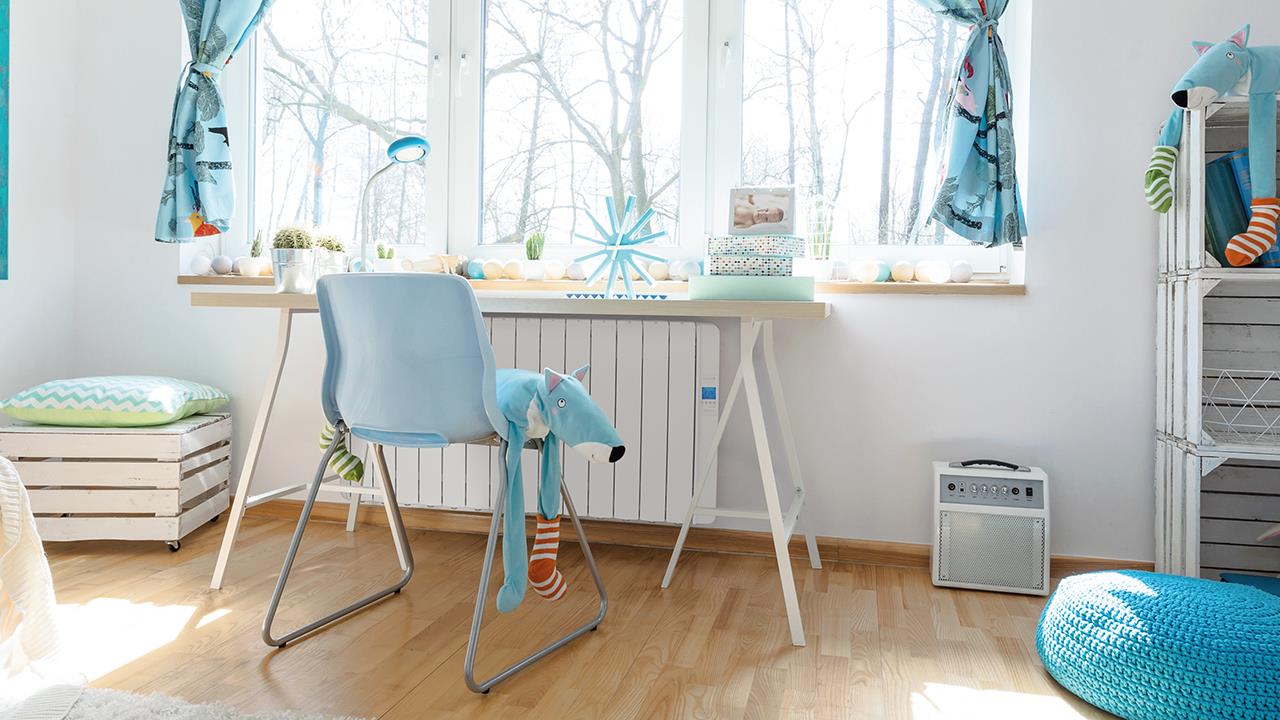

As we move towards the colder months, there is no doubt that the energy crisis is on everyone’s minds.
The rising costs and uncertainty about supply could leave 8.5 million (28%) of all UK households unable to heat and power their homes, according to the End Fuel Poverty Coalition. And with the estimated social and economic cost of leaving people in poor and cold housing in the region of £30+ billion per annum, including at least £2.5 billion in costs to the NHS, the need for people to adequately heat their homes has never been clearer.
There are currently around 1.7 million homes across the UK that are heated by storage heaters, many of which are in social housing. The issue these homes face is that the majority of these heaters are more than 20 years old.
These out of date appliances are detrimental to our environment, since they use old technology that wastes energy and costs UK homeowners more money than they should.
The good news is that there is a new generation version of storage heaters. Known as High Heat Retention (HHR) storage heaters, they can help make a big difference to UK householders.
The technical aspects of storage heaters have advanced exponentially over the past two decades, thankfully.
This innovation has taken us from a storage heater with mechanisms that had to be manually set, would overly charge overnight and release heat throughout the morning, wasting heat and having nothing left in the afternoon; to HHR storage heaters that monitor and automatically adjust the energy intake and release heat into the room more efficiently.
They are more than 27% more efficient than the older manual storage heaters on energy usage, and ensure stored heat os available all day and all night. They also hold the heat inside the heater for longer with improved insulation materials. The Elnur HHR, for example, even takes this technology further by replacing the out of date ‘boost’ elements with a balancing element. This allows for further energy savings of up to 10%.
However, despite these advances, storage heaters still have a bad reputation and there is a lot of misinformation and negative stereotypes circulating about them, which needs to change.
Storage heaters expensive to keep
No, in fact, HHR storage heaters are very cost-effective. They don’t have any yearly maintenance costs. They also have a longer life expectancy than boilers, which need to be replaced about every 10 years and need regular maintenance throughout their lifetime, at the owner’s expense.
Additionally, because they heat up during the night, storage heaters can take advantage of cheaper, off-peak electricity rates (Economy 7 or 10 tariffs).
HHR storage heaters are even compatible with the newer EV charge tariffs with only four hours of charge. Elnur even has a solar HHR that works even more efficiently with solar panels.
Owners can’t use the heat when they want to
HHR storage heaters offer customers comfort levels you would expect from a traditional gas boiler wet system. They come with pre-set programming for ‘home all day’, or ‘working hours’; or owners can customise timings to suit their heating needs.
Some models can be easily managed from a phone or tablet, so owners can adjust and monitor their heating 24/7, even when they aren’t home.
They take up a lot of space
Next generation storage heaters are streamline in design, meaning they are suitable for all sizes and types of home. They are also much more aesthetically pleasing, with no copper pipes needed all over the home.
Storage heaters make you ill
This is an old myth – storage heaters from the 1960s contained asbestos, but they have not done so since the early 1970s.
Another misconception is that they can cause carbon monoxide poisoning. However, this can’t be any further from the truth. Storage heaters work by heating thermatite bricks. They don’t work by burning any combustible fuel that could potentially cause carbon monoxide to build up within the home.
Storage heaters of the 21st century are up to 30% more efficient, when compared to old manual storage heaters, and it takes just one day to upgrade all the old storage heaters around a home to new, more efficient ones.
However, despite coming under considerable pressure in recent years with many consumers concerned by negative and, in some cases, biased opinions of manufacturers, they are more relevant today than they have ever been.
In 2025, UK gas boiler regulations are set to ban gas boilers in new homes. This change will require housebuilders to seek alternative heating sources, which must include electric heating options such as HHR storage heaters, electric boilers, electric radiators, and air source heat pumps.
And for the 1.7 million homes across the UK equipped with old storage heaters, the next generation of these heaters offers a more efficient solution, and will help many people face the energy crisis that looms over us this winter.
If you'd like to keep up-to-date with the latest developments in the heating and plumbing industry, why not subscribe to our weekly newsletters? Just click the button below and you can ensure all the latest industry news and new product information lands in your inbox every week.